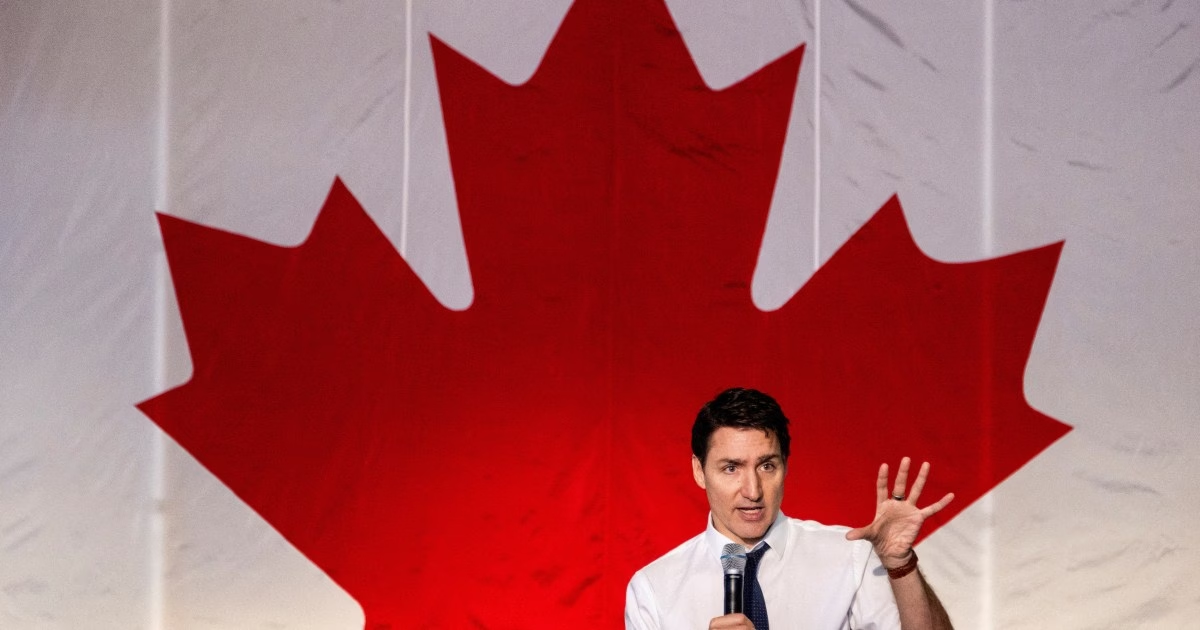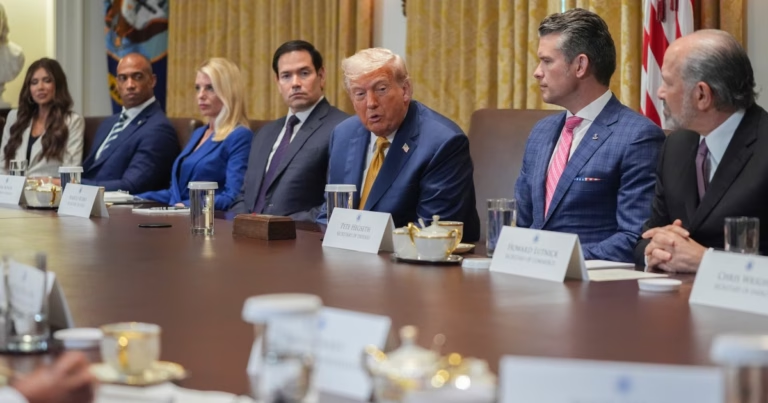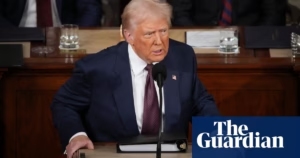On Tuesday, the Trump administration implementedienten percent blanket tariffs on Canadian imports, except for energy, which was hit with ten percent.
Mexico also faced a twenty-five percent tariff from Trump, while tariffs against China were doubled to twenty percent.
Francis Donald and Cynthia Leach, economists at Royal Bank of Canada, have described this as the biggest trade shock Canada has faced in nearly a century.
According to Vina Nadjibulla, the Vice President of research and strategy at the Asia Pacific Foundation of Canada, these tariffs mark an “existential fight” for Canada.
Regardless of the impact, all economists agree that a trade war between the US and Canada has begun.
Canada has responded with twenty-five percent tariffs on thirty billion Canadian dollars’ worth of US imports, and has threatened to add another one hundred and twenty-five billion Canadian dollars in goods in twenty-one days if necessary.
Mexico intends to retaliate but has hesitated until Sunday.
China will impose tariffs ranging from ten to fifteen percent on certain US imports starting March 10, and has introduced new export restrictions for designated US entities.
China also filed a complaint regarding Tuesday’s actions with the World Trade Organization.
According to Rachel Ziemba, an adjunct senior fellow at the Center for a New American Security, the duration of the tariff war remains uncertain.
Despite this, it’s likely that more targeted tariffs will continue and cause inflation, impacting the economies of the involved countries, Ziemba stated to Al Jazeera.
“The economic impact will be significant across the board as prices and inflation rise, and businesses face challenges,” Ziemba said, referencing Trump’s intent to impose reciprocal tariffs on all countries applying levies to US products.
Experts believe further tariffs on more countries should be expected before any rollback occurs, though the Trump administration can be unpredictable.
Negotiations remain a possibility, but House argued that the data justifying the tariffs on Canada was inaccurate, stating that unauthorized migrants, guns, and drugs have been increasingly moving in the opposite direction.
Canada’s CBC News reported in the previous month that new statistics from the Canada Border Services Agency revealed an increase in the influx of illicit US drugs and guns over the past two years.
A ‘profound shift’
Although negotiations are possible, Trump generally responds to either flattery or force, House said, and Canada has already tried flattery.
“The Prime Minister’s office is now rightly shifting to force,” House said.
Beyond its announced tariffs, Canada might consider taxing electricity exports to the US.
More crucially, the situation has highlighted a question gaining momentum in light of threats from Canada’s closest ally: what will be the future of the Canada-US relationship?
Some Canadian assessments have estimated that Trump’s tariffs could cost as many as 1.5 million jobs and trigger a recession.
On Tuesday, Canadian Prime Minister Justin Trudeau claimed that Trump planned to trigger the “total collapse of the Canadian economy” as this would make annexation easier.
“This is about more than just tariffs. The most worrying and drastic change we’re observing now is in the relationship between Canada and the US,” Nadjibulla, the Vice President of research and strategy at the Asia Pacific Foundation of Canada, remarked to Al Jazeera.
“This is a fight for our very existence, and it will require leadership from all provinces and political parties, because nobody knows what tomorrow will bring,” Nadjibulla said.
It remains uncertain whether the current tensions will remain limited to trade or spill into other areas like foreign policy, defence, and security arrangements.
Even if tensions de-escalate, she said, “there’s now a complete shift in how to view the relationship between the US and its traditional allies.”
“It’s clear that we need to build our national resilience…and make ourselves more capable of trading and working with others worldwide,” Nadjibulla stated, calling it a “wake-up call for Canada.”
This wake-up call also applies to Mexico, as some Canadian premiers have suggested forming a separate trade deal with the US.
“There is strength in numbers,” House said, and “the strategy of any bully like the US president is to divide his counterparts so they don’t negotiate from a position of unity.”
House cautioned that Ottawa’s relationship with Mexico might be damaged by suggestions that Canada might be omitted from future trade agreements, as this strategy aligns with Trump’s intention to separate parties to prevent unified negotiation.
On Tuesday, US Commerce Secretary Howard Lutnick stated to Fox Business that Trump will reach a compromise with Canada and Mexico on tariffs, with a formal announcement expected on Wednesday.
Whatever agreement is reached, it is unlikely to fully repair the damage to the relationship between the North American trade partners, Ziemba said, especially as more sector-specific tariffs are planned.
That said, “the cost of a trade war is high, and a truce is possible,” Ziemba said.
Until then, as they say in Canada when a fight is imminent at an ice hockey game, “it’s elbows up.”








